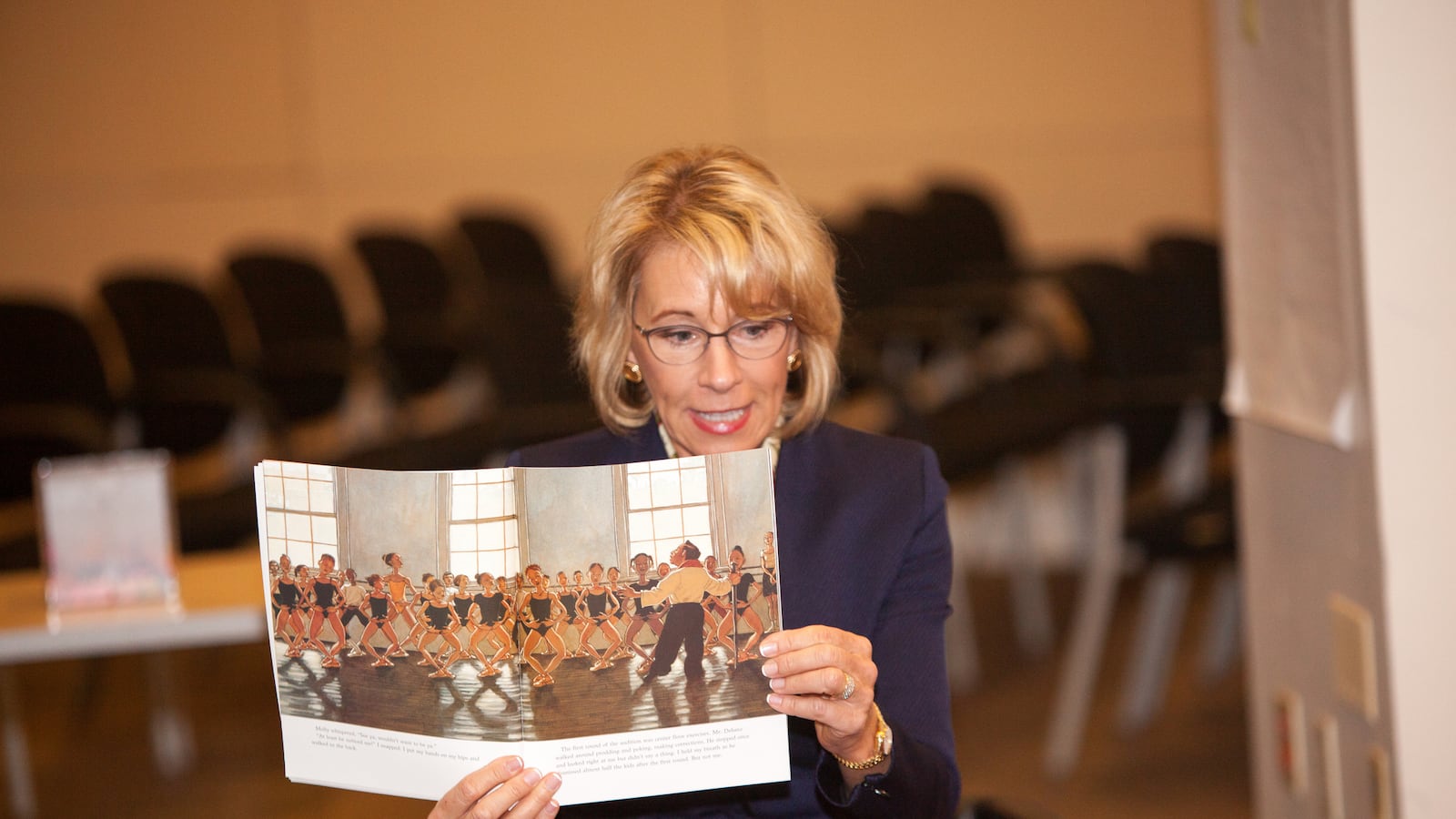Low-income students who used a voucher to attend a private school in Washington, D.C. continued to see substantially lower math test scores as a result of the program after two years, according to a federal analysis released today.
It amounts to a blow to school choice advocates like U.S. Secretary of Education Betsy DeVos, whose department released the report; at the same time, as test scores of private school choice programs have soured, supporters have increasingly argued for judging the initiatives by other means, including high school graduation rates and college enrollment.
The study, of the nation’s only federally funded voucher program, shows that students who won a random lottery to receive publicly funded scholarships to attend a private school scored at the 33rd percentile on a low-stakes math test, compared with the 43rd percentile for similar students who largely stayed in public schools. Voucher students also scored a bit lower on reading, but the difference was not statistically significant, meaning the researchers couldn’t be confident it was caused by the program.
Voucher advocates will likely highlight other results from the report, particularly the finding that private school students and parents perceived their school as much safer than public schools.
There was no statistically significant difference in general satisfaction by school types, though there was some evidence that parents whose students received a voucher were somewhat more satisfied.
An important caveat to the findings is that the exams were not required. Thus, the test scores represent only three-quarters of voucher students and two-thirds of students who applied for but didn’t win vouchers. It’s unclear to what extent this might have affected the results.
About a year ago, the first year study of the program was released showing similar results; if anything, the math gap has only grown, weakening arguments that declines in scores were simply a short-term effect as has been seen in some other voucher programs.
A spokesperson for DeVos did not immediately respond to a request for comment about the latest study.
In 2017, according to emails obtained through a public records request by Chalkbeat, a scheduler for DeVos requested a private briefing on the first-year report a few days before it was publicly released in late April.
“When evaluating the results of this study, we should view it in the context of the long-term effect of Washington, D.C.’s expansive choice programs, not as a one-year snapshot of a particular program,” DeVos said in a statement at the time. “The study released today found that D.C. [voucher] parents overwhelmingly support this program, and that, at the same time, these schools need to improve upon how they serve some of D.C.’s most vulnerable students.”
Advocates pointed out then that the amount of the D.C. voucher was significantly less than per-pupil funding for public schools, and that many students who lost the voucher lottery attended a charter school instead.
“The evaluation is assessing the impacts of adding a private-school option to a set of existing choice options,” the authors of the latest study write. The evaluation … is not assessing the impacts of ‘school choice’ in general, which is not possible in a setting in which school choice already is prevalent.”
Past research on an older iteration of D.C.’s program, before it was reauthorized in 2011, pointed to big increases in high school graduation, and potentially positive effects on reading test scores, but no impact on college enrollment.
Recent research on voucher programs nationally have shown big declines in test scores in early years, followed by a bounce back, in some but not all cases.


